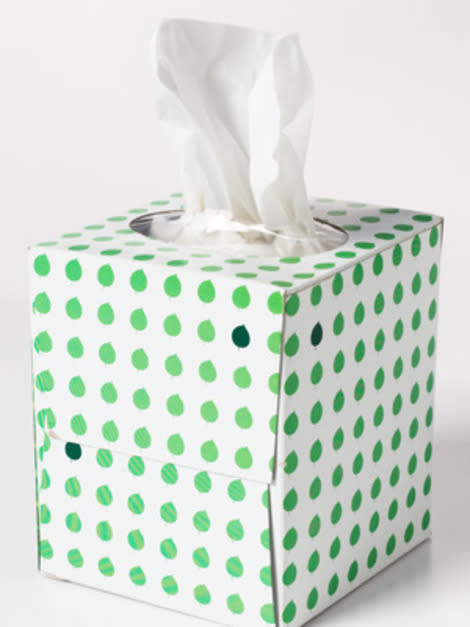Why Allergy Season May Be Worse Than Ever

April Daniels Hussar, SELF magazine
For some, spring means beautiful blossoms and gorgeous weather. For the rest of us, it means itchy, watery eyes, sneezing fits and other forms of torture known as allergies. And this spring promises to be an even worse allergy season than usual.
"Many allergy experts agree that because of the mild winter and warm weather, we're going to have an earlier allergy season," says William Berger, M.D., clinical professor of allergy and immunology at the University of California at Irvine. In fact, an earlier pollen season combined with higher amounts of pollen seems to be a trend, says Dr. Berger, and means that more people are going to be exposed to pollen and, thus, suffer those dreaded sneezing attacks.
Related: Yoga Moves for Flat Abs
Even though it's barely spring, allergy season has already started in most of the country -- like in the South, where you'd expect it, but also in unusual places like Chicago, where it's generally still cold in March, Dr. Berger says.
So what can you do to cut down on your suffering? "Limit your exposure in the first place," says Dr. Berger. "Prevent pollen from getting inside your house by keeping windows and doors closed and turning the air conditioner on." This goes for your car as well.
Also, keep in mind that pollen counts are higher in the morning, so if you can hold off on outdoor activities until the afternoon, that can help. And, Dr. Berger says, "If you've been outside all day, its a good idea to jump in the shower and wash the pollen off of your body -- especially out of your hair -- so you don't take it to bed at night."
Related: 20 Superfoods for Weight Loss
For those who suffer from nasal congestion, Dr. Berger also recommends using a steam vaporizer, like MyPurMist, which provide drug-free congestion relief.
But wait -- how can you tell if you have allergies or just a random spring cold? One of the major differences is that a cold only lasts for a few days or even a week; allergies, alas, last much longer. Colds also often come equipped with high fevers, body aches and chills and yellow or green snot (ew), while allergies tend to cause lots of sneezing, itchy and watery eyes and clear, watery mucus (um, thanks for small favors?), says Dr. Berger.
Never had allergies before? That doesn't mean you won't ever. "It takes several years of exposure for allergies to kick in," says Dr. Berger, who says more and more people are succumbing. "We're finding that with the higher pollen counts and the higher frequency of high-pollen count days, it's reaching the point where even those with mild allergies are having symptoms."
Related: Lose 2 Pounds a Week
Where's the worst place for an allergy-sufferer to live? According to The Asthma and Allergy Foundation of America's 2012 Spring Allergy Capitals Report, Knoxville, Tenn., is the allergy capital of the United States. A close second and third are McAllen, Texas, and Louisville, Ky. Meanwhile, Portland, Ore., is the best place to live if you have allergies. (Surely there's a Portlandia episode in there somewhere...)
The allergy capitals are decided based on an analysis of three factors, explains Dr. Berger: pollen counts, the amount of allergy medicine used per patient and the number of board-certified allergists available in the area. "A lot depends on access to medical care," says Dr. Berger. "But if you have bad allergies, it doesn't matter where you live, you're still going to have symptoms!"
If you're tried all of the preventative measures above and you're still suffering, Dr. Berger says your best bet is to get a referral to a board certified allergist. "As with any other disease, it's very important to get a correct diagnosis," says Berger, who suggests looking into immunotherapy, which actually treats the cause of the problem, prevents your symptoms and decreases your sensitivity. We'll say bless you to that!
More from SELF:
Superfoods for Flat Abs
10 Busy-Girl Buffer Moves
50 Healthiest Snacks
The Pasta Lover's Diet
